|
We often hear that the saints must have been uncomfortable to be around. Their tendency to get straight to the point, to stop in the middle of a conversation to pray, to ask pointed, personal questions, to inquire about your relationship with God, and to be sincere about it all, might cause most people to be uncomfortable. Around these people who are striving to live authentic lives, you might find yourself itching to break eye contact, and to maybe talk about something a little lighter like the new TV show you’re watching or how it is supposed to be sunny all weekend. Though we may not all have encountered saints, many of us can point to people striving to live authentic lives. These people are often unrelenting. Uninterested in frivolities, they are interested in your soul. They want to get to the real you - the you that God made. The you without all the defenses, insecurities, wounds, and fears. But if they find those things, authentic people are also gentle in dealing with them. This is why a saint or an authentic person might make us uncomfortable. Truly authentic Christians allow the light of Christ to shine through them. And Christ is in the business of loving people. So when you are around these people, you are facing Christ through them and, all of a sudden, your real self—the one you have been avoiding and hiding—comes to the forefront. And there is a reckoning. This is what it felt like for me when I watched the movie A Beautiful Day in the Neighborhood, which is based on the true story of the journalist Tom Junod (known as Lloyd Vogel in the movie). Lloyd, who is portrayed as a cynical and unkind workaholic, is assigned to profile Mister Rogers’ Neighborhood’s Mr. Rogers for the magazine Esquire. The relationship that unfolds between them is a beautiful example of what happens when you let an authentic person into your life. I think all of us have at least one of these people in our lives; and if we don’t, we routinely search for, or try to become one. Throughout the movie, Lloyd, who comes from a broken family, struggles in his job of interviewing Mr. Rogers. Due to his cynical nature and a very strained relationship with his own father, he assumes that Mr. Rogers’s on-screen personality is just an act. He spends most of the movie resisting Mr. Rogers’s probing questions and his father’s attempts at reconciliation. Many of the scenes portray an awkward dialogue, with Lloyd becoming frustrated at Mr. Rogers for asking him so many questions! The story continues and the climactic scene shows Lloyd and Mr. Rogers in a restaurant, where he asks Lloyd to spend one minute “thinking about all of the people who have loved you into being.” Here, for a full minute, the camera pans to Mr. Rogers’ face, where he’s looking straight at you. For 60 full seconds you feel completely seen and known. After this moment, Lloyd lets down his guard and lets Mr. Rogers into his family brokenness. He comes to grips with himself, his past, and how all of that will affect his future. What happens is completely transformative. Once he forgives his father, he then accepts his identity as a father himself, and becomes more available to his wife and more supportive to his sister. The film quite beautifully shows that forgiveness has a ripple effect—once you forgive the cause of your largest wound, you experience healing, the people around you are unified, and everyone is able to love others better and more authentically. Lloyd was able to do this after he came to understand what Mr. Rogers was doing all along: searching for and loving people for who they really are, and engaging with that person, no matter how many walls they put up. Being seen and loved in this way then enables you to forgive quickly, heal faster, and love more. By following the example of Mr. Rogers, we can create families and neighborhoods that are more unified. Mr. Rogers, a beloved figure in American culture, understood what it meant to see, know, and love people at their very core, just as Christ and the saints did. People felt understood by Mr. Rogers and loved him in return. At the beginning of the movie, Lloyd felt uncomfortable with Mr. Rogers’ piercing gaze, personal questions, and spontaneous prayer; but as a result of Lloyd’s friendship with Mr. Rogers, Lloyd and his entire family came to experience healing and joy. In these ways, Mr. Rogers imitated Christ, who accompanied men and women throughout his ministry and encountered them in the midst of their brokenness and sin. Christ healed others by stepping into their brokenness with a love that inspired them to change and lead lives of holiness themselves. As we enter into the New Year, what changes can we make to better love our neighbor? How can we follow Christ and the example of Mr. Rogers and see, know, and love people in the midst of their brokenness?
0 Comments
In this world of artificial connection, can we still discover and grasp an authentic connection within ourselves to our Triune God? Many of us are technologically connected throughout the day and into the evening, whether it be through social media, texting, e-mails, the Internet, or general screen time. In a normal day-to-day setting, take a moment to reflect on how often you have face-to-face time to truly speak with and connect with your family, peers, friends, or co-workers. In those moments, are you able to reach beyond a superficial level of connection? Oftentimes amidst the busyness of our lives, schedules, commutes, and responsibilities, we find it difficult to truly maintain a connected relationship with others that goes beyond our phone, tablet, or computer screen. If maintaining this human connection has become difficult, how much more difficult is it for us to find those moments of quiet, internal spiritual connection to God? Our society and technology have fooled us into believing that all of this quick and easy access has made it easier than ever to keep in touch with those that mean the most to us. And yet oftentimes it has instead succeeded in building walls of electronic screens not only between us and others but, more importantly, between us and God. There are many things that resonate between our physical, or exterior, and our spiritual, or interior, lives. What is the equivalent “screen time” in our spiritual lives? Where are we holding onto surface-level connections instead of digging deeper into our relationship with God and growing in our spiritual life? Are we holding onto a barrier that is holding us back from maturing in our spiritual development? Just as we grow, develop, and mature in our physical lives, we are called to do so in our spiritual lives as well. Today, we celebrate and commemorate the life of Saint Teresa of Jesus, also known as Saint Teresa of Avila. Saint Teresa was a spiritual writer and mystic. She is one of four females to be named a Doctor of the Church, meaning that her spiritual writings have been given special authority. Her teachings, writings, and life can point us in the direction of growing in our interior life and thus growing in our faith and connection to God. In Saint Teresa’s spiritual writing The Interior Castle, she likens the stages of growth and development of our interior life to seven mansions within a castle. Saint Teresa describes the dwelling of God within us as residing in the seventh mansion of our castle. Through the growth and development of our spiritual life, our soul is to journey through the mansions to find its rest within the seventh, the kingdom of God. The first step in entering the castle is prayer. Saint Teresa teaches that, “Souls without prayer are like people whose bodies and limbs are paralyzed.” Let’s take a moment to reflect on our prayer life. Are there any “electronic screens” standing in the way of deepening our relationship and our conversations with our Creator? Are we connecting to God in our prayer life as if we are updating our Facebook status or posting our latest photo to Instagram? Or are we really striving to power down the screens of distraction in our life to speak with God AND listen to Him? Let us turn to the life of Saint Teresa as an example and inspiration for our desire to develop the maturity of our soul. The next time you enter into prayer, “Go to your inner room, close the door, and pray to your Father in secret.” (Matthew 6:6) If we look at these words of Scripture through the lens of Saint Teresa’s teachings, we must pass the walls of our castle, our body, in order to enter our inner room. Allow yourself a few moments to quiet and calm the body in order to turn your focus to God. Take time to power down the screen. Close your eyes and breathe deeply. The Divine Physician has created our body in such a way that by slowing and deepening our breath rate, our heart rate and blood pressure decreases, our muscles relax, and the racing thoughts of our mind slow so that we can focus on one Triune thing, our God. In this state of quiet and calm, invite the Holy Spirit into this moment and seek a true, contemplative connection in prayer with your Creator. I would like to close with a prayer often attributed to Saint Teresa of Avila: “May today there be peace within. May you trust God that you are exactly where you are meant to be. May you not forget the infinite possibilities that are born of faith. May you use those gifts that you have received, and pass on the love that has been given to you. May you be content knowing you are a child of God. Let this presence settle into your bones, and allow your soul the freedom to sing, dance, praise and love. It is there for each and every one of us.” Saint Teresa of Avila, pray for us! This year, the theme for Catechetical Sunday (September 16th) is “Enlisting Witnesses for Jesus Christ.” This day is a reminder that all of the baptized play a role in the mission of sharing Christ with others, whether that be through formal or informal ministry. This mission seems pressing today. In Bishop Robert Barron’s 2018 message for Catechetical Sunday, he says we are losing baptized Catholics at an alarming rate. In a Pew Research report, we see that Americans who identify as atheists or agnostics make up about 23% of the U.S. adult population. This group of religiously unaffiliated individuals, or “nones,” is mostly concentrated among young adults, and the median age of unaffiliated adults continues to get younger. Of this population, those who describe themselves as agnostic or “nothing in particular” cite their top reason for not affiliating with a religion is that they question a lot of religious teachings. Having questions is actually an essential part of learning about and understanding the Catholic faith; only when we question can we begin to move beyond a lack of understanding and come to learn the truth of the Gospel. God desires for us to use our intelligence to come to know him before acting upon our faith. The majority of young adults and “nones” find value in meaningful relationships over institutionalism and in authenticity over authority (Halbach). This shows us that the Church can engage the “nones” by forming relationships in order to accompany them along the journey of life. In the mission to bring Christ to others, we serve as authentic witnesses to the Good News of the Gospel through our lives. The Church needs the active participation of the laity to conduct outreach efforts in the everyday moments of our lives, both inside and outside of the Church. We were created to be social beings who can form relationships with others that will lead them to Christ and to the Church. Much of this relationship building happens organically in our communities and parishes. For example, a couple of weeks ago, my parish young adult group heard that the grandmother of one of our new members had passed away. After hearing this news, we wrote and signed a sympathy card to mail her. By this small act of love for our fellow sister in Christ, we were able to show our genuine care for her and our desire to welcome her back to church after her travels for the funeral. As missionary disciples, we know that there is no one “right” path to building these relationships and caring about those around us. This allows us to share our innate gifts creatively with others in order to build authentic relationships. Furthermore, sharing our own faith stories of personal encounters with Christ helps us to accompany others on their faith journeys as well. We must show others that we love them through our actions rather than our words. Christ enlists us as his witnesses. This Catechetical Sunday, how can you respond to his call? Questions for Reflection: Are we open to questions about our Catholic faith in helping ourselves and others come to know God? Are we preparing ourselves to be able to answer questions from others about the faith in a rational manner? What are some ways you can begin to build authentic relationships with others in your community or parish? How are you building personal relationships with others in context of your faith journey? To learn more about living as missionary disciples, click here. Half of America is single. The hook-up culture and age of technology have greatly changed the way people date; the script for traditional dating is often considered unpopular and “outdated.” Despite all of this, people still desire authentic, meaningful relationships. This illustration of the typical modern dating scene is explored in a film called The Dating Project, a new documentary that follows five single men and women, ages 18-40, as they navigate the dating landscape on their search for lasting relationships. (The film’s executive producer is Steve McEveety, who also produced The Passion of the Christ and Braveheart). I found the film to be honest and, at times, humorous. All the main characters are unscripted, and I felt their stories accurately portrayed the frustrations many of us have experienced in today’s confusing dating world. The Dating Project was inspired by Boston College professor Dr. Kerry Cronin’s infamous “dating assignment,” which Dr. Cronin developed after learning her students didn’t know how to ask someone else out on a date. In the assignment, each student must ask another person on a “Level 1 Date” following a certain set of rules. While some critics call Dr. Cronin’s dating rules old-fashioned, her rules actually encourage getting to know a person for who they are—without sexual expectations. The goal of a Level 1 date is purely for information gathering. Dr. Cronin outlines specific rules for this first date:
These rules emphasize that dating should be about getting to know a person, appreciating his or her qualities and determining whether they are the type of person you would like to eventually explore a long-term romantic partnership with. When we lose sight of this, we are only seeing men and women as commodities – mere sources of pleasure or satisfaction for ourselves in the short term. We are called, instead, to recognize that all people are made in the image and likeness of God—which is difficult to do when you think of only how another person can benefit you. We have to be mindful of not falling into what Pope Francis calls a “throwaway culture” when it comes to relationships. We aren’t shopping for a product on Amazon, after all. By the conclusion of the documentary, we see the five individuals who serve as the focus of the film progress in their confidence when it comes to dating and relationships. The college students who participated in the dating assignment remarked that asking someone out on a date in person was a much better feeling than a hookup. They said they would continue this way of dating in the future. I was most impressed with the change in the 40-year-old man. He led a more non-committal lifestyle when it came to relationships and by the end, I could tell the questions the directors asked him, such as, “If the woman of your dreams walked up to you, what would you say?”, had made an impression on him. He thought more deeply about how he viewed women as daughters of God, he could imagine himself in a long-term relationship, and he felt like dating within the parameters of the assignment allowed him to avoid temptations more easily. As children of God, we are called to a higher standard than what our culture provides. We need to step up as Catholic men and women and change the dating narrative. We must be courageous! As Pope Saint John Paul II says in his letter to families, “Do not be afraid of the risks! God’s strength is always far more powerful than your difficulties!” We live in a world where social media creates a narrative of perfection and curated happiness. The constant pursuit of success, fulfillment and precision fuel our actions. We confuse modern ideals of self-interest, pleasure and minimalism with happiness. This false sense of happiness leads to a severe sense of discontent with our culture of appearances and deception. This, in turn, gives rise to the importance placed on truth and authenticity. Beneath the discontent we all feel is a shared desire to witness and live authentic lives. In a new film, “Pope Francis – A Man of His Word,” we watch the story of a man who practices what he preaches. In the movie, we hear from a religious sister who says that God gives us a pope who is a reflection of what we need in the current times. In a global society that is starved for genuineness, sincerity and truth, Pope Francis provides the world with simple, bite-sized snippets of profound wisdom that are easily understood. In one of those snippets of wisdom, our pope urges us to “Talk little, listen a lot.” As 1 John 3:18 says, “Children, let us love not in word or speech but in deed and truth.” Pope Francis shows us through his actions – washing the feet of inmates, providing a kind touch of prayer to sick children – that tenderness is strength and not weakness. I work in communications and in my profession we have a common phrase that says, “show, don’t tell.” Our culture yearns to see others living out honest, genuine values through action, not words. Pope Francis is an example of someone who shows us how to love and that love is a choice. Love is at the core of Jesus’ message. His teachings are those of love in action. Jesus tells us in Matthew 22:37-40 that the greatest commandments are to “love the Lord, your God, with all your heart, with all your soul, and with all your mind … You shall love your neighbor as yourself. The whole law and the prophets depend on these two commandments.” However, in order for us to love like Jesus, we must be free to give of ourselves to another. Freedom isn’t the ability to do whatever we want, when we want, where we want; it’s the ability to choose what is noble, true and right. Sometimes it seems that as a society we have lost our identities as free beings created by God to love and be loved. We forget that God placed the sense of longing for happiness in our hearts so that we may love him, ourselves and others. This yearning is designed to bring us closer to God and ultimately provides our fulfillment. Questions for Reflection: Who are the people in your life that show you how to freely love others? How can you show love for others in your own way using the gifts bestowed upon you by the Holy Spirit? What are some simple steps you can take to live out your life authentically? I remember feeling refreshed when Laudato Si’ was published just over two years ago. The opening line the Pope selected, “Praise be to you, my Lord,” echoes St. Francis of Assisi’s framing of the earth as a “sister with whom we share our life and a beautiful mother who opens her arms to embrace us.” For me, an encyclical letter being released carried the same weight as seeing a long-hyped movie on opening night; as the second-highest ranking Church document, encyclicals like Laudato Si’ carry high papal priority and are written in the Holy Father’s own hand so that their views can authoritatively end a theological debate on a particular question. I very much enjoyed reading and discussing its rich contents among my peers. In the light of Christian spirituality, the document links environmental stewardship to both authentic human ecology and also the need to care for and protect those who might suffer from rash and greedy ecological harvesting. These discussions about the encyclical continued during the school year with university-sponsored symposiums, panels, service activities, and curriculum integrations designed to continue to unpack the impressive document from what many might erroneously dismiss as simply a work about climate change and the need to live sustainably.
A few months after he released Laudato Si’, Pope Francis announced in a letter to members of the curia his intention to establish a “World Day of Prayer for the Care of Creation” on the first day of September each year. The purpose of such a day, in my opinion, is to globally unite efforts by the Church and Her collaborators regarding the care of creation—efforts that continue throughout the year and which the Church re-consecrates and re-entrusts to God as a work beyond human hands. The same goes for similar days established by previous popes and the bishops conferences such as the International Day of Prayer and Awareness Against Human Trafficking, the Fortnight for Freedom, the World Day for Consecrated Life, the World Day of Prayer for Vocations, World Youth Day, World Marriage Day, and others. Through the establishment of these days, the Church seeks to galvanize us with a call to action to refresh our focus and attention to matters which affect us all physically, culturally, and spiritually. The annual World Day of Prayer for the Care of Creation is geared to unite our prayers with acts of witness: [It] will offer individual believers and communities a fitting opportunity to reaffirm their personal vocation to be stewards of creation, to thank God for the wonderful handiwork which he has entrusted to our care, and to implore his help for the protection of creation as well as his pardon for the sins committed against the world in which we live. Anyone can recycle, turn off unnecessary lights, or use public transportation, but what Pope Francis invites us to do (while reiterating the “nobility… [of these] little actions”) is something much more substantial and fulfilling. Laudato Si’ is his personal call for each of us to live out an “integral ecology,” which does not neglect our relationships with God, other human beings (especially those often neglected by society), and the natural creation of Earth. Pope Francis highlights the fact that all are integrated. To allow one relationship to suffer is to allow the others to suffer as well. The World Day of Prayer for the Care of Creation is not intended as a rude awakening to the artificial harm being inflicted upon the planet. The natural creation that surrounds us is inherently “good” because God Himself wonderfully designed and detailed everything… and we human beings are the crowning achievement (see Genesis 1:26). When we behold His wonders, we should be moved to praise Him for everything He has set before us as part of our earthly home (see Psalms 104 and 148)! As we celebrate the World Day of Prayer for the Care of Creation, I invite you to read or reread Laudato Si’. In doing so, may we be moved to want to preserve and protect our world in recognition of its inherent dignity so future generations may continue to marvel and wonder at the works of God. “May the glory of the LORD endure forever; may the LORD be glad in his works!” -Psalm 104 Question for Reflection: How can you live out what Pope Francis calls an "integral ecology"? For more resources on Laudato Si', please click here. You may have heard this phrase or a deviation of it before: while St. Ignatius referred to, “Seeking God in all things,” St. Vincent Pallotti taught, “Seek God in all things, and you will find God in all things.” Both convey the same message. While this message can be an easy one to remember, putting it into practice is a different story—even Jesus’ disciples had trouble with this! If we look at the story of the disciples on the road to Emmaus, it was only after Jesus had traveled along the road with them, sat down, and broke the bread that they recognized Him (cf Luke 24:13-32). If the disciples could struggle to recognize Christ, how many times in our lives have we also failed to recognize Him in a person, place, or event?
This past summer, I undertook the great challenge of attempting to recognize Christ in my everyday life. Having been blessed with the opportunity to attend World Youth Day in Poland, I, for the first time, felt like I was truly experiencing a culture that was authentically Catholic. Everywhere I went, I found myself able to identify Christ present in my surroundings. Throughout the trip, I worried that the enthusiasm with which I found it easy, even second nature, to exhibit my faith would go out like a lamp when I landed and departed from my group in the US. I knew it did not have to, nor should be that way, but in the back of my mind this was how I felt. I was compelled to not make this happen. I knew I needed a community in which I could sustain and share the joy of seeking Christ in all things. Enter the Knights of Columbus Council of Catholic University. Having been recently elected Grand Knight of the Council, I knew I had many decisions to make, one of which included coming up with a theme for the upcoming fraternal year. While flying home from Poland, it dawned on me: what better theme than what I had just experienced? After making my suggestion to the chaplain and a few others, the theme of “Seeking Christ in All Things” was announced to the Council during our first business meeting in the fall semester. Following this announcement, the Council sought to incorporate the new theme into its fraternal programs, beginning with the reflection shared by the Council’s Lecturer and continuing with our Chaplain’s reflections. There was much discussion about our theme, “Seeking Christ in All Things.” Discussion is important, but as Knights, we must also give witness to our faith. The Knights at The Catholic University of America have sought Christ in our lives and invited others into this encounter with Him in various ways. Some examples that come to mind center around our weekly “Knights Mass” where, together with our campus community, we attend daily Mass once a week together. Afterwards, we pray the rosary together and invite others to join us. Knights from our Council also lead and are involved in numerous activities through our university’s campus ministry. These programs include a weekly homeless food run, tutoring at a local after-school program, and countless liturgies on campus and in our neighborhood in Washington, D.C. In addition, several members of our Council will be doing international and domestic mission trips during our spring break. You do not need to be a Knight of Columbus to encounter Christ or bring people closer to Him. As we begin Lent, I invite you to take the time to look for Christ in your life. Strive to pray wherever you are, not just in church on Sundays. Go volunteer and recognize Christ in those whom you serve. Look for the unconventional places that Christ may in your life. Find the beauty that is there and never let it leave your sight. Daniel Hackenjos serves as Grand Knight of the Knights of Columbus Council of Catholic University where he studies elementary education as an undergraduate. Some of the extensive spiritual formation programming of the CUA Knights is in the March 2017 edition of Columbia, the official magazine of the Knights of Columbus. As I was walking down the sidewalk to my residence hall, I glanced at my watch and realized I had a busy night ahead. I still had class until the evening, had to eat dinner, meet with a resident, prepare for next Monday’s program about how faith enriches our relationships, and study for two exams the next day. When I unlocked the door to my room, I realized I had about fifteen minutes until my next class. I thought to myself that it would be a good time to quiet myself and pray. I decided it would be easier, since I was rushed, to quickly recite a couple of prayers rather than expend the necessary effort to examine my day or truly open my heart to God, the Infinite Love. My principle concern at that moment was to check daily prayer off my to-do list. I felt rather empty for the rest of the day and struggled in my ministerial responsibilities. I lacked authentic prayer in my day and it took its toll. While authentic prayer can be hard, especially for those of us involved in ministry, authentic prayer empowers us to fulfill the mission Christ entrusted to us. Yet, what exactly is authentic prayer?
During a homily in the chapel of the Santa Marta residence in 2013, Pope Francis stressed that “the Lord tells us: 'the first task in life is this: prayer.' But not the prayer of words, like a parrot; but the prayer, the heart: gazing on the Lord, hearing the Lord, asking the Lord.” Pope Francis astutely observed that authentic prayer is integrally connected to the heart, the Sacred Heart of Christ, and our own hearts. When we engage in authentic prayer, we are opening our hearts to the transforming infinite love and mercy of Jesus Christ. We are being honest with God about the desires of our own heart. While authentic prayer is certainly beneficial for our own selves, being practitioners of authentic prayer also is a gift to the entire Church. Others notice God using us sinful creatures as His instruments. Our lives become signs that point towards the Kingdom of God. Yet, we must each reflect on how tempting it is to imitate a parrot in our prayer. How often do we recite prayers to cross them off of our to-do list, having little faith that the Lord will answer them? Asking God to open our own hearts to His infinite love combats this temptation. If I had taken the time to really open my heart to God, to be honest in my prayer and not dress it up, I would not have struggled with my ministerial responsibilities. When we become men and women of authentic prayer, Christ transforms our hearts after His own heart. Thus, we are empowered by the Holy Spirit to be humble heralds of the infinite love and mercy of Jesus Christ. For more resources on prayer, click here. If you are anything like me, you find it difficult to discern God’s call, but sometimes Jesus makes it plain and simple in Scripture. For example, Jesus very specifically calls us friends (John 15:15). Friendship is a calling.
In my own faith journey, I continually find this actually a rather strange, startling summons. Jesus’ friendship is an unmerited grace-filled gift, which is desirable, but it also demands something of me, which is a bit frightening. On a day-to-day basis, nothing gives me, or most people I imagine, greater joy than faithful friendships. If we Christians lack Gospel joy, it goes to show among other things, that we are not heeding the call to be faithful friends of Jesus. Rediscovering friendship as a calling has challenged my paradigm for discerning my personal vocation. Friendship shapes both the context and content of my choices. Let me try to explain what I mean. A culture of friendship is an indispensable context for discerning a vocation. Faithful friends often know us better than we know ourselves. They help us discern our gifts, weaknesses, and purpose, and then encourage or challenge us to act in a way we couldn’t or wouldn’t on our own. Like the spiritual life in general, friendships are very often difficult to navigate. This is not because the path ahead is overly complicated, but because the next step usually lies in the darkness of the unknown. Friends who know our hearts invite us to step into the vulnerability with courage and bring our darkness into light. One example in my life is the young adult group I attend, the Baltimore Frassati Fellowship. We don’t focus on multiplying social activities, which too easily becomes another way to fill rather than sanctify our time. The Church teaches us to share each other’s time, not compete for it. We focus on cultivating an atmosphere of trust and virtue that counterbalances the typically transitory and fast-paced “young adult” phase of life. Our events are rather ordinary, but they are consistent and dependable: weekly adoration, regular service opportunities, and a larger monthly Holy Hour and social. Pretty soon, we all have to make decisions (something I’m bad at), so friendship also determines the content of our vocation. Paraphrasing John Henry Newman, each of us is called to some definite and unique vocation, which is centered in some specific friendship(s) (Meditations on Christian Doctrine, I.2). Here is a question to pray with: What kind of friendship am I called to, and with whom? I wasn’t always used to thinking about different “kinds” of friendships, so one helpful question I learned to ask while in seminary concerned the call to exclusive or inclusive friendships. Am I called to befriend one person like no other (marriage), to show no partiality and be a special part of many lives (religious life), or some other group? Moreover, since there is no greater love than “to lay down one’s life for one’s friends,” (John 15:13), friendship is also intrinsically sacrificial. Another form of the question is: Who is God calling me to daily lay down my life for: a spouse and children or on the altar of Eucharistic sacrifice? That’s what makes so special the radical witness of someone like Jean Vanier, the founder of L’Arche. Vanier felt called to leave behind an academic career to form a small community with persons with developmental disabilities where they could share their lives in faith and friendship. After 50 years, his original calling continues to grow and inspire others to embrace the joy, virtue, sacrifice, and particularity our friendships in Christ are meant to take. As part of the universal call to holiness though, evangelization involves going out and befriending others and inviting them to become friends of Jesus. Friendship, though it takes different forms, is an apostolate all are called to.  It certainly surprised me to find out that one of Christianity's most popular saints never actually said this, nor did he write the "Make me an instrument of Your peace" prayer! While these often-used quotes are very much in the spirit of St. Francis, the sentiment was likely inspired by a line from the Franciscan Rule, in which he said, "Let all the brothers, however, preach by their deeds." We all know St. Francis as the saint of simplicity, of appreciation for God's creation, and, of course, preaching to the birds. He was known in his lifetime as a man of great poverty, giving up all that he owned for the poor. In fact, as a young man, he stripped off his clothes in the middle of Assisi and renounced all worldly possessions, including his inheritance from his father. From that point on, Francis spent his life in service to the Gospel and God's people, spreading the message of Christ by the way he lived his life and interacted with others. It comes as no surprise, then, that our current Pope, a Jesuit, made a nod to this charism of simplicity and authenticity in choosing the name of Francis. It is, I believe, a stark reminder to the Church universal of exactly what the New Evangelization is all about: encountering Christ in our everyday lives and bringing Him to the world in the simplest ways possible. There is no better delivery of the Gospel than to treat every person we meet with simple Christian charity, as though he or she were Christ Himself. We are, after all, made in His very image and likeness! Two years ago while on pilgrimage to Rome, I had the great blessing of taking a day trip to Assisi. Many of us have heard the story of the San Damiano Cross, through which Francis heard the Lord say, "Rebuild my church, which as you see has fallen into ruin." Spending a day of prayer before that same cross, walking the hilly streets Francis traversed so many times in his life, and praying in the Porziuncola (the chapel Francis built with his own two hands), was like a step right into the life of the Saint. It inspired me in a very profound way to always remember that the goal of our faith is quite simple. If we live our lives with true authenticity to the Gospel, we rarely have need for words. Looking, then, to the example of Pope Francis and his namesake, today's Feast reminds us to live our faith simply, to find God in the simplicity of nature, the beauty of His creation, and in the face of each person we meet. It is how Christ lived his life, and how we are called to live ours. With that reminder, may we all be the instrument of His peace that our world so desperately needs us to be. Jay Schaefer is the Webinar Associate for the Catholic Apostolate Center.
 I’m convinced that God has added to the hosts of angels a new rank: Facebook-aphim. Facebook seems to be the messenger of all things surprising in our time. From births to shocking engagement announcements, I learn most things I know through Facebook. A few days ago, I learned that a wonderful woman who I once worked with died after a very long battle with cancer. She was the receptionist in the front office of the Catholic high school where I was employed after I graduated from college. She was usually the first person who greeted me when I entered the building each morning. Her chipper, “Good morning, David!” was as unrepeatable as she. To say that she was a character and full of life would be an understatement. I look forward to her greeting the next time we meet face-to-face. While the school in which she and I worked was founded to educate young people, I often found that I was the one being educated. The school was run by the Oblates of St Francis de Sales, and it was there that I met Francis de Sales in the men and women who live his charism of incarnational love, gentleness, and authenticity. They invited me into their lives of faith, which, at that point, fit none of the conventional rules of faith I was used to. In fact, the things they taught me about the Christian life didn’t have any rules to play by at all. They taught me about what a very human life of faith was all about. They invited me on their journey of life, a very Salesian thing to do. My former coworkers, and those who follow Francis’ way of life, embrace the humanity of our existence (read: the messiness, uncertainty, and hurt) that God came to redeem. They live authentic lives, in all their brokenness, because they live with an awareness of God in the present moment. My coworkers were aware of God’s presence as they dealt with the death of their spouses or parents or our coworkers, students, and friends. They were aware of God’s presence during their divorces or terminal illnesses or their children’s poor decision making, failure in school or struggles with drugs. They were aware of God’s presence when they celebrated their children’s weddings, the birth of their grandchildren, and when that student who had struggled for four years graduated. And when I came to them in my times of need, unsure of God’s presence in my life, they somehow knew enough to speak to me in love, and they made themselves understandable because hearts speak to hearts, lips speak only to ears. It was then that I understood what God’s listening might be like. In sharing their lives with me, both the successes and failures, they illustrated that the call to discipleship is the call to be who you are and be that perfectly well. For us, we were teachers and staff and administrators, but we were also mothers and fathers, sons and daughters, friends and mentors. Francis reminded us that our vocation was only to be the best of what and where we found ourselves. To be the best child or the best educator was our call. They showed me that the best way to live the Christian life was not necessarily as a monk or religious, but as a person who lived the life that God called him to in the present moment, as well and with as much love as he could. To be who you are and be that perfectly well is much harder than it seems, but attempted in full humility brings the liberation that we enjoy as beloved children of God. How often do we claim that authentic identity and make it our own? I am forever grateful for having learned of Francis de Sales and his charism of Gospel living. I am indebted to the men and women, those who I now count as friends and those who I wait to see again in eternal life, who showed me how to Live Jesus. I am confident that the friendships taken up in this world will be taken up again, never to be broken off. In the Christian life, we are together on a journey to heaven. But it takes a lifetime of patience, generosity, and authenticity with and for each other to get it right. David Pennington is the Associate Campus Minister for Liturgy and Worship at The Catholic University of America.
As a young adult active in the life of my parish and diocese, I am often asked why I “do what I do.” The even better question I am frequently (but usually jokingly) asked is, “What is wrong with you?!” These questions are typically posed by the “church ladies” that will often comment on my bright red hair and then go on to lament the fact that their children or grandchildren do not attend Mass on Sundays.
I find these conversations to be great times for evangelization, and I try to respond with a question of my own: “When was the last time you asked them to come with you?” A blank face usually stares back at me. As Catholics, inviting someone to go to Mass with them is often a foreign concept. For many of us (myself included), faith is a very personal thing, and the thought of wearing it on our sleeves is not necessarily the most comfortable. Perhaps the Season of Advent that we will begin on Sunday is the perfect opportunity to invite a friend, family member, or neighbor back to the practice of their faith. As we wrestle between the Season of Advent and the secular Christmas season, it might be helpful to view our lives as Christians as a perpetual Advent, as a constant rebirth. The Advent that we seek is something new, something filled with the grace of rejuvenation through the working of the Holy Spirit. The mission of baptized Christians is to believe, practice, and teach the truths of the faith. Responding to this call in a responsible and proactive way is often the problematic or challenging part to living out the task of evangelization. The picture of faith that we often paint for ourselves is frequently an illusion of what we desire out of our own human weakness. If faith lacks substance, Pope Benedict XVI has said that our individual faith “will not be big enough to cope with reality.” If we believe that a sign will fall from the heavens with the answers to our questions of faith, then we are missing the signs that God provides for us each and every day. In its authenticity, true faith should be given out of love for God and with the confidence that God does not need our praise and thanksgiving. Although we trust in a God that we cannot see, we believe in the Advent of a renewing and fulfilling redeemer whose Church should be compelled to evangelize and spread the message of salvation. My challenge to you as we begin this Season of Advent is this: Invite someone to go to Mass with you. Smile. Listen to some Christmas music. Put some pocket change in the bell ringer’s bucket for charity. “Prepare the way of the Lord” (Mk 1:3) and “be vigilant at all times” (Lk 21:36). A blessed Advent to you and yours! Grant your faithful, we pray, almighty God, the resolve to run forth to meet your Christ with righteous deeds at his coming, so that, gathered at his right hand, they may be worthy to possess the heavenly Kingdom. Through our Lord Jesus Christ, your Son, who lives and reigns with you in the unity of the Holy Spirit, one God, for ever and ever. -Collect, First Sunday of Advent Alex R. Boucher is the Program & Operations Coordinator for the Catholic Apostolate Center. Follow Alex on Twitter at @AlexBoucher. This past weekend, I had an opportunity to lead a day retreat for liturgical ministers at a local parish. It was a wonderful time of discussion, reflection and most importantly prayer. At one point amid our large group discussion I asked the question (much like Brett Garland in a recent post), “why are we Catholic in today’s society?” It was an unscripted, off-the-cuff question, but one that I thought would shed light on the importance of evangelization among the lay faithful. The answers were varied, but one stuck out in particular: an older woman said, “Because my parents were Catholic and raised me this way.” I challenged her to explain the answer by asking if her parents were the only reason she remained Catholic. Her answer was short and to the point: “No, my children are.”
The responses that this woman gave are two of the most basic, yet important teachings of our Catholic faith: “no one comes to faith alone” (CCC 166) and “we can’t give what we don’t have” (CCC 425). Throughout the history of the Church, we have seen time and again, that people bring others into relationship with God. Very rare are the days of the burning bush, but not so rare are the days of ordinary people leading others to the extraordinary truth that God exists. In my own life, I can credit my parents, campus ministers, members of my community, friends and now, my students, for helping me to discover God working in and throughout my life. It is with their witness (good and bad), their encouragement and their prayers that I have come to live my faith. What is even more telling, however, is that the faith we have is not ours to hoard. Our faith - that is our belief in a perfect, triune God who loves us unconditionally and is made present to us in the sacrifice of the Mass - is meant to be shared. For more than 2,000 years, the faith of our fathers has been handed on from generation to generation. Christ urged his disciples: “Go, therefore, and make disciples of all nations, baptizing them in the name of the Father, and of the Son, and of the Holy Spirit, teaching them to observe all that I have commanded you. And behold, I am with you always, until the end of the age” (Matthew 27:19-20). If every Sunday we profess belief in an ever-present God and we leave Mass with the intention to live our life transformed by His Word, then it is our obligation as baptized Catholics to share what we have been given. I’m reminded of a pertinent thought by Thomas Merton: “God has willed that we should all depend on one another for our salvation and all strive together for our own mutual good and our own common salvation.” Our faith and the faith of those around us should not be self-centered or self-contained, but rather, by virtue of our baptism, shared joyfully with every person we encounter. So, consider these thoughts: who has helped bring you to this point in your faith life? Have you thanked them for their witness, encouragement or prayers? And, when was the last time you shared your faith in an authentic and joyful way, so as to bring about “mutual good and our own common salvation?” Jonathan Jerome is the Director of Catholic Campus Ministry at the University of Pittsburgh Johnstown. In the recent “Faithful Citizenship” lecture on the foundations of Catholic political theory, Dr. Stephen Schneck (CUA politics professor and Director of the Institute for Policy Research & Catholic Studies) presented Thomism as an alternative to the radical positions held by groups at opposing ends of the ideological spectrum. While the two extremes disagree about particulars, according to Schneck, both “Ayn Rand conservatives” and “pro-choice liberals” are motivated by a “hyper-individualism,” which is in direct contradiction to the social teaching of the Church. If we are to believe Dr. Schneck’s premise, it seems that faithful Christians are left between a rock and a hard place in the current political landscape. Thankfully, the political philosophy of St. Thomas Aquinas offers Christians an authentic alternative.
Synthesizing ecclesiology and political philosophy, St. Thomas understood the nature of a political community as being deeply Christological. Drawing from St. Paul’s imagery, St. Thomas perceived the political community as a reflection of the Mystical Body of Christ: “For as in one body we have many parts, and all the parts do not have the same function, so we, though many, are one body in Christ and individually parts of one another” (Romans 12:3-5). This image of a political community as a corporate whole is in stark contrast to the Lockean image of a group of individuals that is held together solely by an externally imposed contract, rather than internal unity. The Thomistic political community is held together by solidarity among its members, a unitive desire for the wellbeing of the whole, rather than individual self-interest. In Thomistic philosophy, the object of this desire is referred to as the commonweal, or the common good. But why place more importance on the common good than individual goods? Because, as Aristotle said and St. Thomas affirmed, we are political and social beings; the meaning of our lives transcends beyond who we are as individuals. As John Donne observed in his oft-cited Meditation XVII, “No man is an island, entire of itself; every man is a piece of the continent, a part of the main.” After Dr. Schneck had concluded his lecture, a question-and-answer session followed. A young woman from the back of the lecture hall politely asked, “What can we do as individuals to combat the pervasiveness of hyper-individualism in our society?” Ironically, this question demonstrates what is at the root of the problem of hyper-individualism: we cannot cease thinking of ourselves primarily as individuals! This shift in thinking does not mean that we must give up our own individual rights; to the contrary, our solidarity with one another should engender a greater appreciation for the individual rights of a group’s collective members. In fact, it is our individual freedoms that allow us to choose how we prioritize our actions and intentions. Through our individual liberties, we are given the opportunity to look and act beyond ourselves. During this Easter Season, may we all be reminded that through our baptism and as members of Christ’s Body, we have truly been raised with Him! (cf. Ephesians 2:6) In order to more fully participate in God’s divine economy – i.e. His comprehensive plan for Creation – may we “not think of [ourselves] more highly than [we] ought to think” (Romans 12:3), but instead humbly unite ourselves to our fellow members in the One Body of Christ. Brett Garland is the Program Development Coordinator for the Catholic Apostolate Center. |
Details
Archives
July 2024
Categories
All
|
About |
Media |
© COPYRIGHT 2024 | ALL RIGHTS RESERVED

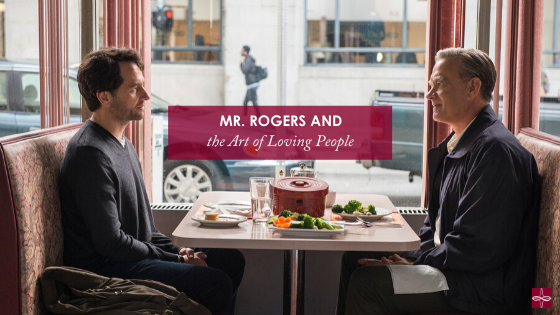







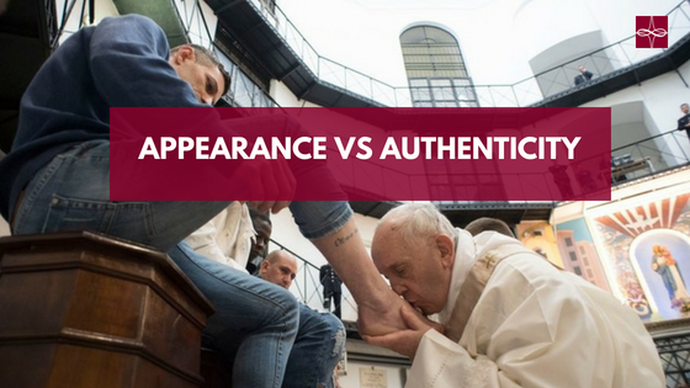


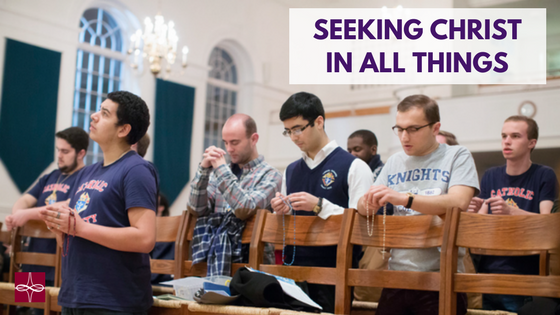
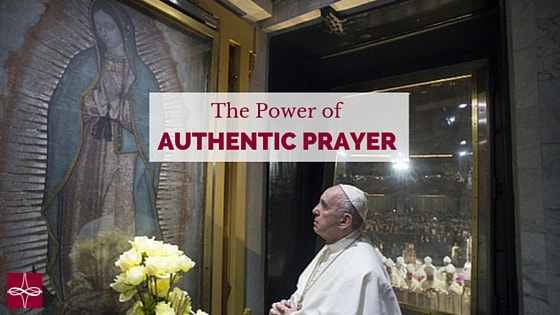
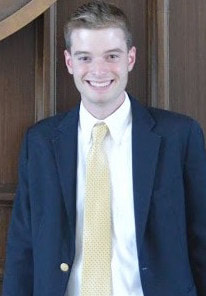
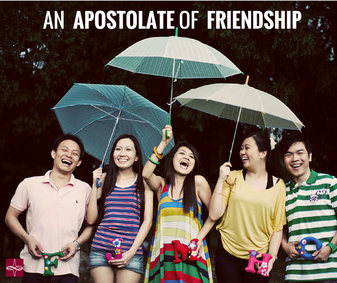


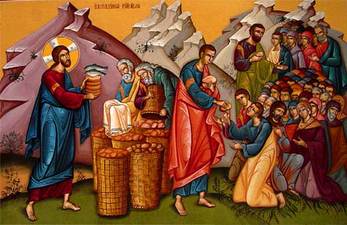
 RSS Feed
RSS Feed